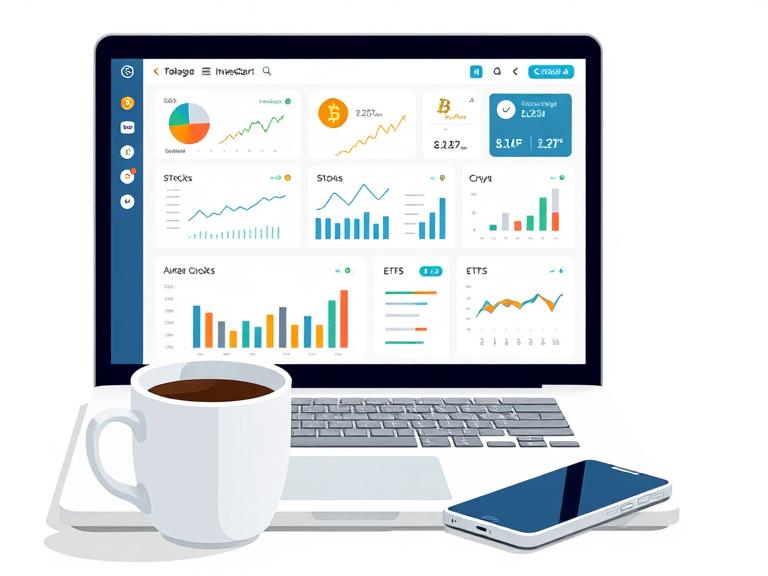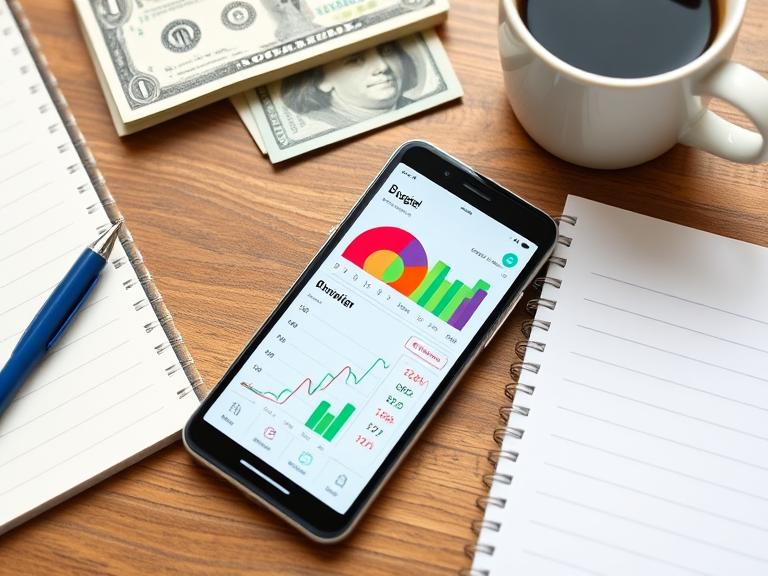In the modern age of digital finance, budgeting is no longer a tedious task that requires spreadsheets and calculators. With the rise of budgeting tools and apps, managing your money has become smarter, easier, and even enjoyable. Whether you’re living paycheck to paycheck or managing multiple income streams, the right tool can transform your financial habits and help you reach your money goals faster.
In this guide, we’ll explore the top budgeting tools in 2025, break down their unique features, and help you decide which one fits your financial lifestyle. From free beginner-friendly apps to robust, premium options for serious planners—there’s something here for everyone.
Why Budgeting Tools Matter More Than Ever
Budgeting is the foundation of personal finance. It empowers you to:
- Track your spending in real-time
- Identify wasteful habits
- Set savings goals
- Pay off debt faster
- Avoid overdrafts or late fees
But manual budgeting often fails due to inconsistency or overwhelm. That’s where technology steps in. Apps do the heavy lifting, automate data collection, and give you visual insights into your money.
What to Look for in a Budgeting Tool
Before we dive into our top picks, here’s what makes a budgeting tool truly effective:
- Ease of Use: An intuitive interface that doesn’t overwhelm.
- Bank Integration: Syncs with your financial accounts for real-time tracking.
- Customization: Allows you to tailor categories and budgets.
- Goal Setting: Helps you track savings, debt payoff, or other objectives.
- Alerts & Notifications: Keeps you accountable with reminders.
- Security: Uses encryption to keep your data safe.
Top Budgeting Tools in 2025
Let’s explore the best budgeting tools that are helping millions take control of their finances in 2025.
1. YNAB (You Need A Budget)
Best For: Habit-building and proactive planners
Cost: $14.99/month or $99/year (with a 34-day free trial)
Key Features:
- Zero-based budgeting approach
- Link multiple bank accounts
- Detailed goal tracking
- Educational workshops and community
YNAB is more than a budgeting tool—it’s a money management philosophy. It encourages you to assign every dollar a job and gives unmatched clarity on future expenses. While it has a learning curve, it’s life-changing for those who stick with it.
2. Mint by Intuit
Best For: Beginners and casual budgeters
Cost: Free (ads supported)
Key Features:
- Automatically syncs with accounts
- Visual dashboards for spending categories
- Credit score monitoring
- Bill tracking and reminders
Mint remains a favorite for its clean design and simplicity. If you’re new to budgeting and want to start tracking your spending without commitment, this is a solid starting point.
3. Empower (Formerly Personal Capital)
Best For: Budgeting + investing
Cost: Free (investment advising is premium)
Key Features:
- Net worth tracker
- Expense categorization
- Cash flow insights
- Retirement planning tools
Empower is perfect for those managing wealth and investments but still want a grip on their monthly budget. Its net worth tracker is especially useful for long-term financial planning.
4. Goodbudget
Best For: Couples and envelope method fans
Cost: Free basic plan; $8/month or $70/year for Plus
Key Features:
- Digital envelope budgeting
- Sync across devices
- Manual expense tracking
- Ideal for joint budgeting
Goodbudget brings the old-school envelope system into the digital world. While it requires manual input, it helps reinforce spending discipline. Great for couples managing shared finances.
5. PocketGuard
Best For: Quick spending insights
Cost: Free basic version; PocketGuard Plus $7.99/month
Key Features:
- “In My Pocket” feature shows what you can safely spend
- Automatic categorization
- Recurring bill tracking
- Goal setting features
PocketGuard is for those who just want to know, “Can I afford this?” It simplifies budgeting by focusing on disposable income and offering visual cues to guide spending.
6. Spendee
Best For: Multi-currency users and global travelers
Cost: Free basic plan; Premium starts at $2.99/month
Key Features:
- Shared wallets for group budgeting
- Multi-currency support
- Budget templates and expense graphs
- Manual and bank-sync options
Spendee is great if you manage finances in multiple currencies or want a visually rich budgeting app. Perfect for freelancers or digital nomads.
Choosing the Right Tool for You
Each app offers something unique. Here’s how to decide:
| Your Goal | Best Tool |
|---|---|
| Build new budgeting habits | YNAB |
| Track expenses with minimal input | Mint |
| Combine budgeting + investments | Empower |
| Budget with a partner | Goodbudget |
| Get real-time spendable balance | PocketGuard |
| Manage travel or global income | Spendee |
Tips for Making the Most of Budgeting Tools
- Be Honest: Input all sources of income and recurring expenses.
- Review Weekly: Regular check-ins help course-correct bad habits.
- Set Specific Goals: Save for an emergency fund, trip, or debt target.
- Automate Where Possible: Link accounts and turn on reminders.
- Use Insights: Many apps highlight trends—use them to your advantage.
Final Thoughts
In 2025, budgeting tools have become smart, secure, and incredibly helpful. They’re not just for number crunchers anymore—they’re for anyone who wants to take control of their financial future.
The right budgeting app can mean the difference between wondering where your money went and telling it where to go. Try out a few, see which interface feels right, and stick with the one that helps you stay consistent.
Remember: budgeting isn’t about restriction—it’s about freedom. Freedom to spend on what matters, save for the future, and sleep better at night knowing you’re in control.




